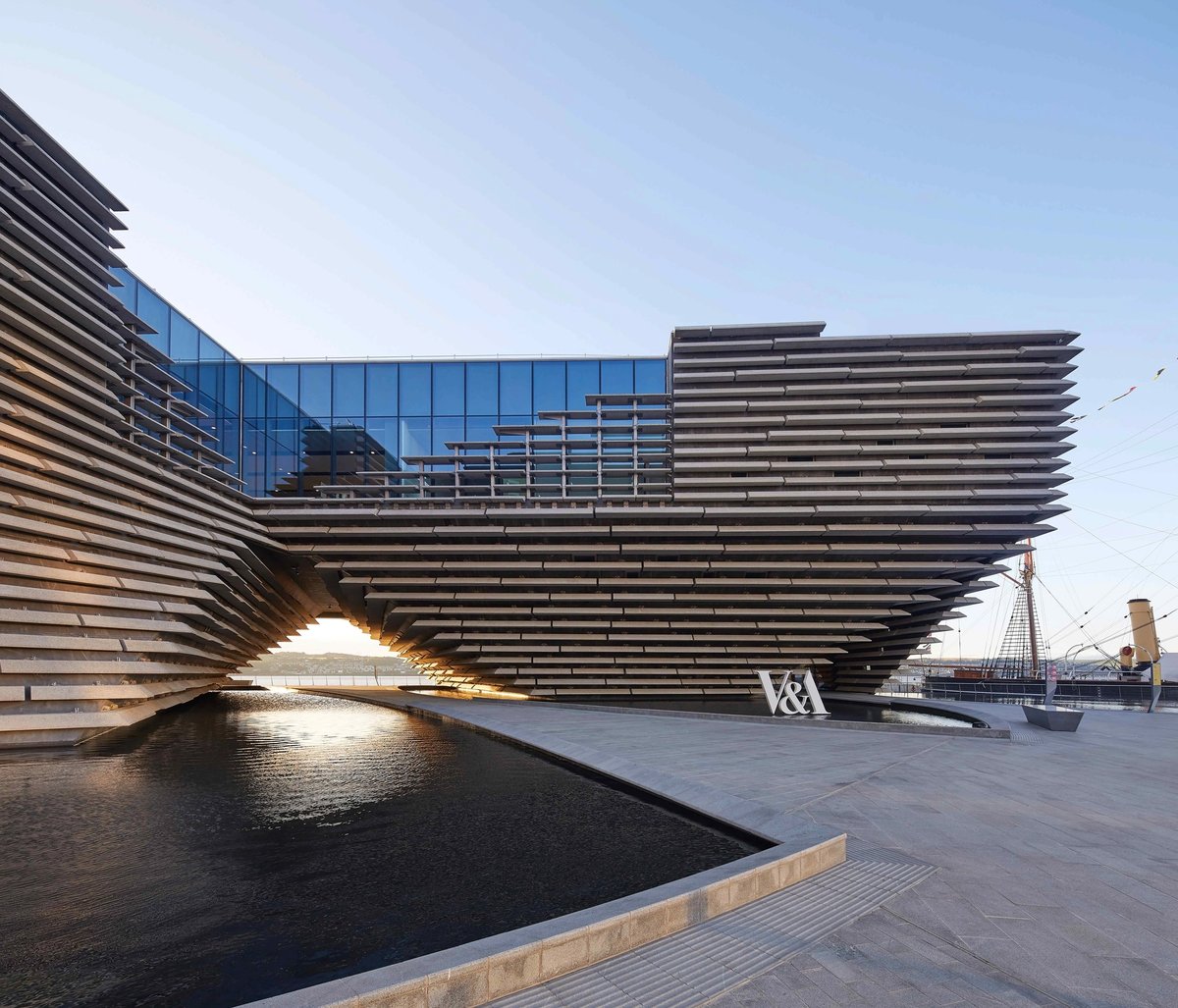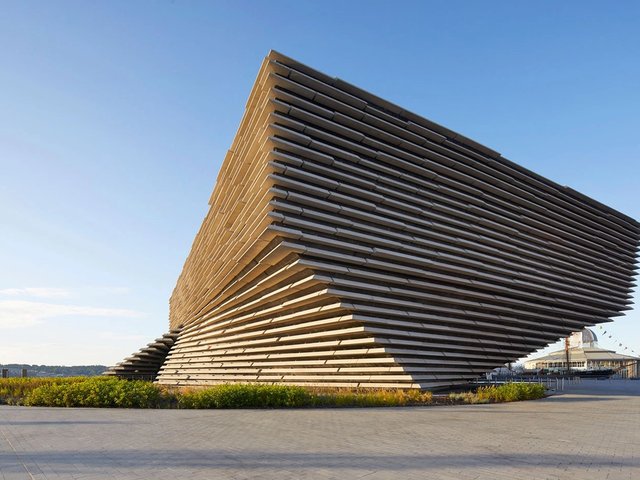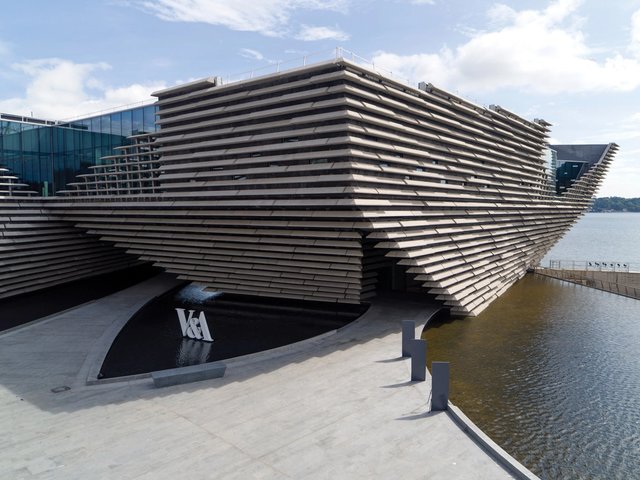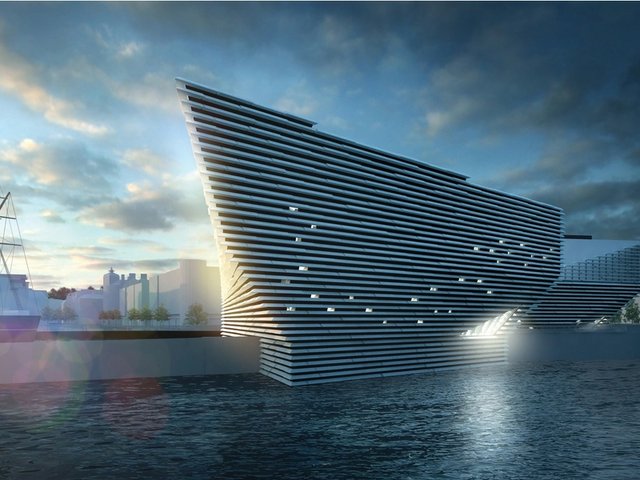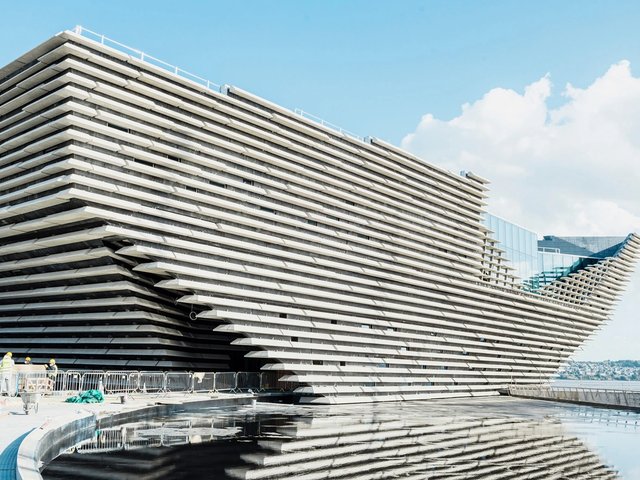The V&A Dundee is to permanently halve the number of major exhibitions it stages to one a year.
The move by the Victoria and Albert Museum's outpost in Scotland comes as part of a series of cost-cutting measures designed to ensure the future economic viability of the institution. The step down from two major shows was first introduced on a trial basis in 2022, as part of a revised response to the impact of the Covid-19 pandemic. But a new report recently sent to the Scottish government by V&A Dundee has confirmed that the museum will host only one annual paid exhibition for the foreseeable future. The reduction is part of a series of “mitigating measures” that include covering operational costs from financial reserves and cutting overall spending.
The report argues that “a volatile operating environment” exacerbated by the cost of living crisis and soaring inflation has forced the museum to act in a bid to protect its future programming and staff. In her comments to the Scottish parliament last week, V&A Dundee director Leonie Bell stated that for the past five years her organisation had endured “year on year of mitigating measures” and that the difficulties had led to a lack of confidence “to plan beyond a year ahead”.
Speaking to The Art Newspaper, Bell says there are potential benefits in hosting a single major exhibition. “We see this as a positive step,” she says. “This change allows us to focus the financial and staff resource that we have on delivering world-class exhibitions which are available to visitors for longer, for those travelling to Dundee from across the UK and internationally, and for repeat local visits.”
The museum’s Tartan exhibition, which opened in April last year and closed earlier this month, was the first show to open as part of the reduced programme. Tartan celebrated the instantly recognisable pattern, with displays featuring high-fashion designs by Vivienne Westwood and Alexander McQueen alongside tartan worn by figures ranging from Bonnie Prince Charlie—leader of the Jacobite uprising in 1745—to comedian Billy Connolly. The exhibition was a critical success and welcomed more than 75,000 visitors through its doors. Given the V&A Dundee opened only five years ago in a city with just 150,000 residents, Bell says the museum is “delighted” with this number.
The challenges faced by V&A Dundee, which is Scotland's first design museum and the only V&A institution outside London, come in the aftermath of a period of significant disruption. The striking waterfront building, designed by Japanese architects Kengo Kuma and Associates, was forced to close 18 months after its launch due to Covid-19 public health measures. Since re-opening in 2021, the organisation has continually revised its business model to respond to the pandemic and rising operational costs.
But there is hope on the horizon for the museum, which receives the majority of its funding from the Scottish government, alongside contributions from its founding partners, as well as commercial partnerships and self-generated income. For the 2024/25 financial year, the Scottish government has increased its financial support by an extra £800,000. Bell says this gives the museum “a fighting chance” of being able to fulfil its organisational aims.
The additional funding for V&A Dundee is a bright spot within the Scottish culture sector’s otherwise gloomy financial landscape. News of the £800,000 boost comes amid serious financial problems at the Scottish National Galleries and budgetary setbacks at Creative Scotland, the public body that supports the arts, screen and creative industries. As Bell said in her comments to parliament, other arts organisations in Scotland will require the same opportunity “to demonstrate what the cultural leadership and workforce of this country are extraordinarily capable of doing”.


